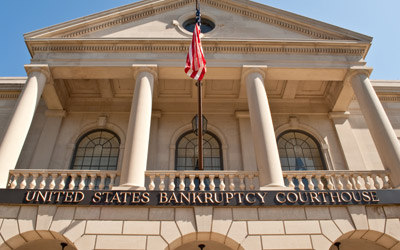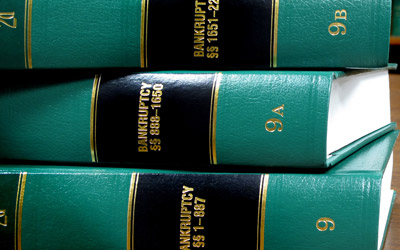Bankruptcy Articles
Mistakes to Avoid in Bankruptcy
If you are considering bankruptcy, then you should avoid the following mistakes:
1. Paying a family member or transferring property. You should not repay any any debts to any family member without first running it by an experienced bankruptcy lawyer. If you do, then you could be creating a nightmare for yourself. If you pay any money or give any property to a family member in the year before you file your case then it filed must be fully reported, under oath and penalty of perjury, on your bankruptcy paperwork. If you repay any debts to any family members, then the bankruptcy trustee can try to recover these payments. The trustee will then try to classify these recaptured payments an asset of your bankruptcy estate. Once you file for bankruptcy, then the trustee will send your relative a letter and demand that he or she send him a check for the amount that the debtor recently paid them. For instance, if you repay your mother a $3,000 loan within six months of the date of your filing, then the trustee can claim that this payment was a preference, and he could request that your mother disgorge this payment. You don’t want get your family involved in your bankruptcy case. This scenario could be a nightmare come true. Moreover, you should not transfer any property out of your name out of fear that you will lose it in the bankruptcy. Instead, you should talk to your attorney, who can advise if there are other legal ways to avoid the loss of your property.
2. Racking up the charges on your credit cards. It is absolute sheer lunacy to rack up your credit cards before you file for bankruptcy. This is a recipe for disaster! Charging on a credit card or borrowing from any other lender when you know you can’t repay can be considered to be bankruptcy fraud. Thereafter, your credit card company can object to your discharge of this individual debt in your bankruptcy case. Moreover, contesting an adversary case can create a substantial legal bill for you. In summary, if you plan on filing for bankruptcy, then it is advisable to immediately stop using your credit cards.
3. Borrowing against or cashing your pension plan. It is never advisable to cash in your retirement accounts to pay off your credit card debts. If you are behind on your mortgage, then this is another story. Any assets that are deposited in a retirement account is exempt from creditors. Your credit card company can’t seize your savings if your retirement account. You will need your retirement savings one day. Don’t blow all of your retirement savings to simply pay off your credit cards.
4. Borrowing against your house. Before the credit crunch and the housing crash, many of my clients would take out additional mortgages and home equity loans to pay off their high credit card debt. They could not take the endless collection calls any longer. In most instances this is a terrible move. If you should choose this path of disaster, then you are essentially turning your unsecured credit card debt into secured mortgage debt. Not too smart! If you can’t afford the new mortgage and the higher payments, then you are just as poor as before, but now you will also lose your house instead of keeping it in a bankruptcy case.
5. Keeping your lawyer in the dark. A person hires a lawyer to obtain legal advice. However, a lawyer can’t perform his job adequately unless you give him the total picture of your financial predicament. Moreover, it is imperative that you provide your lawyer with your complete information. It can’t be overly emphasized that the penalties you face for not telling the truth on your bankruptcy petition are severe. If you commit bankruptcy fraud then you could face several years in prison and also be required pay massive fines. Don’t risk it it is not worth it! In any case, your lawyer is sworn to secrecy. The worst that can happen from telling your lawyer the truth is he may decline to represent you, depending on the nature of problem.
6. Taking payday loans, especially “online” payday loans, or writing bad checks. Bad checks are harder to deal with in bankruptcy. The holder of the check can continue to try to cash it even after you file, which then requires you to place top-payment orders on the checks with your bank, or even close your bank account. Ordinary bad checks (not payday loans) can refer the matter to the local municipal prosecutor, and the bankruptcy law offers you no legal protection against criminal prosecution.
7. Waiting too long to file your case. Waiting will lead to problems you could have avoided, such as court judgments, garnishments, and further harm to your credit rating. Frequently, many people who desperately need to file for bankruptcy unfortunately wait until they have spent their last dollars in a hopeless effort to stay current or catch up on their debts, or have been garnished, and as a result have no money available to hire an attorney. Don’t let this happen to you! You should be realistic with yourself about your ability to pay your creditors. You will avoid months or years of stress, and you will be able to receive your fresh start much sooner.
8. Filing too soon. Sometimes, the desire to file and obtain a fresh start is very strong. Your lawyer may advise you, however, to wait. Filing too soon may cause you to lose assets, like pending tax refunds. There may be other good reasons to wait. It is never too soon, however, to consult with a lawyer.
9. Waiting too long to talk to a lawyer. While it is natural and understandable that many people in heavy debt will treat bankruptcy as their last resort. This is not entirely true, there are still other options available to New Jersey-ites who can’t keep up with their consumer debt. Nonetheless, bankruptcy should not be your first resort either. If you decide to take the plunge, then your decision to file must be carefully considered and thought out. Bankruptcy is not something to take lightly. Bankruptcy can ruin your credit and it can be embarrassing. However, on the whole bankruptcy is still a better alternative than debt settlement scams, receiving constant collection calls, being sued, having your paycheck garnished, or simply doing nothing and hoping your creditors disappear. If you file bankruptcy now, then in only a few years you may be able to rebuild your credit rating. Meanwhile, if you simply do nothing, in a few years you will still be just as poor as you are now, and your credit rating will still “sxxx.” You will only know your real options if you have a consultation with an experienced bankruptcy lawyer.






